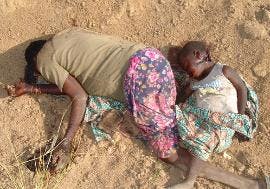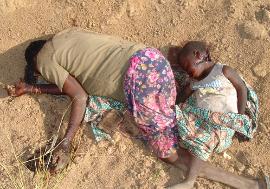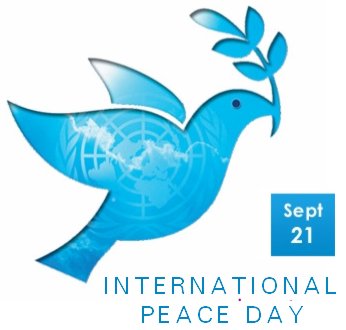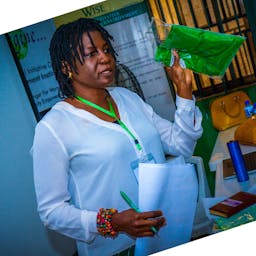Grassroots Women’s Grassy Spots in Conflicts
Jan 21, 2015
Story



The human race is continuously in dispute over issues that cut across, natural resource use and control, politics, race, religion and ethnicity; resulting in concerted search for lasting peace. Generally, rural settlements in Nigeria are grossly neglected in terms of basic security; as many of them are in remote locations. In recent years, many villages in certain parts of Northern Nigeria have experienced a wave of deadly hostilities perpetuated by faceless marauders. The deadliest of such wanton rampages were usually carried out in the stillness of the night by which time the entire community would have gone to sleep. These onslaughts which usually leave bloody marks on its trail usually occurred without any meaningful arrests made at the end of it all.
Due to the socio political disadvantages and exclusion experienced by rural dwellers, many remain poor and cannot afford to put sound and effective security measures in place. Their history of shared sense of wellbeing further adds to their slack security practices and measures. Typically their dwellings are usually mud built, thatch roofed huts with very fragile wooden doors that offer rather precarious precautions, which make them very open to uninhibited attacks. In the face of such security lapses, time and time again, directly and indirectly, hapless women continue to find themselves at the receiving end of deadly invasions, especially at night. There are many cases of women and children who have been hacked to death, raped, abducted, harassed or assaulted in very gruesome manners. Their hope of waking up to a future that is full of expectation is suddenly terminated without any prior inkling. Those who survived such orgies by the whiskers, always leave to relive very chilling tales of their encounters.
This brings to mind the account of a woman who watched her husband as he was hacked to death. Like other families in the community, they had retired to sleep in their one-room mud built hut, unsuspecting of an imminent threat to their family’s togetherness as well as community’s extremely mutual coexistence. That night, they were fast asleep when out of the blues, they were awakened by the reverberating sound of gun shots, and the howling of women and children. Confused and disquieted, she ran under their family bed with their little baby whom she had to muffle to keep him from giving them away. She implored her husband to join them but he declined. All too suddenly, their door came crashing down and a group of men charged at her husband who attempted to run out. All at once, they started jabbing their knives into him until he fell down, lying in a pull of his own blood. By this time, she had become ice cold, still had her hands over her baby’s mouth and had become oblivious of the possibility of gagging him. Fate however smiled at her and her baby as the intruders retreated without attempting a search of their unlit miniature apartment.
By the time it was dawn, a number of community members lay dead, many huts that had been touched were still smoldering and wailings from different ends still filled the air just as survivors counted and recounted their losses. Though she was glad that she and her baby survived the ordeal, life has never been the same for her and other members of the community. She remains traumatized and may never come to terms with the rationale behind such unprovoked, unjustifiable and merciless killing and maiming of innocent people. To add salt to her festering injury and pain, her survival was declared questionable by some chauvinists, when her case was mentioned in the course of a formal enquiry into why such occurrences persisted within and around the community. Findings in one quarter held that such attacks were prompted by contention over resources, while another linked to ethnic rivalry.
Today, the government and peace loving people of Nigeria are working round the clock to find lasting solutions to all forms of conflict and violence. No one was therefore surprised about the apt seriousness with which this year’s ‘World Peace Day’ was marked across the country with special focus on the Family and youths as ‘Instruments for Peace and National Development’. Globally, the ‘World Peace Day’ is observed on the 21st of September, every year. This year's theme, "Sustainable Peace for a Sustainable Future," focuses on the role that natural resources play in financing or fuelling conflict and what is being done to address this issue. Reflecting on the theme of this year’s celebration, I thought to myself that the focus could not have come at a better time considering topical hostilities over natural resources, which have caused a lot of drawbacks in terms of national development; and also continued to threaten peaceful coexistence amongst Nigerians. It is consequential to point out that development can only be achieved in an atmosphere of stable peace.
Under a state of acrimony, women have always found themselves in the position of the proverbial grass that suffers when two elephants fight. In war torn zones across the world, women and children account for a vast majority of the sufferers; as they are never spared a taste of the bitter pills and horrors of war. The search for peace may, however, remain vague if women who are the real victims and the most vulnerable to acts of war remain excluded from the processes of mediation, resolution, reconciliation and peace building. In my opinion, Nigeria’s area of attention which bothers on family values is tactical because naturally, we know that every society is made up of family units and these family units are considered to be the base of the community. Imagine a society made up of peace loving families and clans.
Given the opportunity, women can help find innovative and enduring ways to local and global peace through the family unit, especially because women are the base and backbone of the family and the onus of meeting basic survival needs of the family lies with them. In the drive towards sustainable peace, women must be well represented and given a place of pride at the negotiating table. Our leaders should as a matter of urgency put in place, institutional mechanisms and frameworks; which will strengthen women’s involvement, and also recognize their contributions to local and global peace. With greater integration, more balanced representation and support in the peace deals, women can help reduce and or resolve the many challenges associated with peace and development. To this end, I submit that communal and global peace processes/efforts should strategically engage women.




